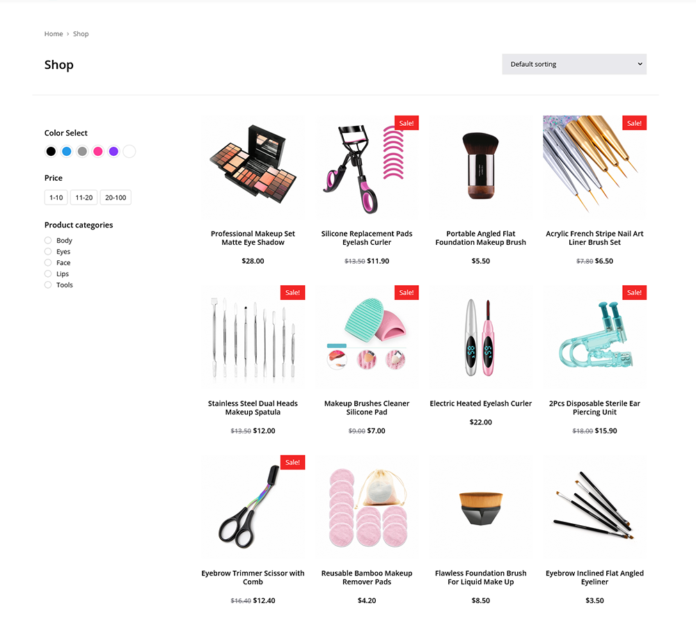In the online world today, online stores keep looking for ways to pull more people, make their time good, and get more sales. SEO is one of the best ways to make this happen. By making your product pages better with SEO, you can really help your place in search results, meet more people, and in turn, sell more. This piece will look at how SEO can help product pages in e-commerce to be seen more and get more sales.
See Why SEO Matters for Selling Online
SEO is about making a site or page rank higher in search results for certain words. For online stores, SEO really matters as it reaches people who want to buy what you sell. Without good SEO, your product pages might stay hidden in search results, making it hard to find you.
Good SEO makes sure your product pages show up for the right people at the right time. Using good methods can bring more visits, make a better time for users, and mostly, make sales more likely. With so much competition, SEO for e-commerce product pages is a must, not just an extra.
Picking the Right Keywords
Looking for the right keywords is key in e-commerce SEO. It means finding the words that potential buyers use in searches for products like yours. By choosing the right words, your product pages will show up in the right search results.
Start with words close to what you sell, like brand names, types of products, and features. Long words that are very specific usually have less competition and turn into sales more. For instance, instead of a big word like “shoes,” try “leather running shoes for men” to pull in buyers who know what they want. Use tools like Google Keyword Planner, Ahrefs, or SEMrush to find good keywords that lots of people search for but not many compete for.
Making Better Product Titles and Descriptions
After finding your keywords, make your product titles and descriptions better. These are key for search engines and buyers. Search engines use these texts to know what your product pages are about, while potential buyers use them to see if your products match what they want.
Write clear, short, and keyword-rich titles that truly describe the item. Avoid using too many keywords as it can hurt your SEO and turn away customers. For descriptions, give useful info that talks about the main points and benefits of the product. Add your keywords in a natural way while keeping the text easy to read and interesting.
Also, good images and videos of your products are important. Visuals are key in making sales, and search engines also look at image alt text when ranking pages. Make your images better by using descriptive file names and alt tags with the right keywords.
Making a Better User Experience (UX)
A good product page should rank well and give a great user experience. Things like how fast the page loads, how it works on phones, and how easy it is to move around are key to keeping visitors and making them buy.
To make the user experience better, make sure your product pages load fast. Slow pages make people leave, which can hurt your SEO ranking. Tools like Google PageSpeed Insights can show where to make things better. Also, make sure your site works well on phones and gives a smooth buying experience, as many buy using phones and tablets.
Another key thing is clear product categories and filters. By putting your products into the right groups and giving filters, you make it easier for customers to find what they want, making their time better and sales more likely.
Using Customer Reviews and Social Proof
Content from users, like reviews and ratings, can really impact both SEO and sales. Search engines like pages with new, related content, and reviews are a great way to give that. Ask your customers to leave reviews, and always answer to both good and bad feedback to show you value their views.
Reviews not only help SEO by adding new content to your pages but also give valuable social proof. Potential buyers often trust reviews more than product descriptions as they come from other buyers. Good reviews can build trust and credibility, which in turn can lead to more sales.
Adding Structured Data Markup
Structured data markup, or schema markup, is a code you can add to your product pages to help search engines understand your content better. By using structured data, you can make rich snippets in search results, like star ratings, price, availability, and product images.
These better search results can make your product listings stand out, leading to more clicks. Rich snippets also make the user experience better by giving more info to potential customers before they even click. Adding structured data to your product pages is a great way to help SEO and make your pages more visible in search results.
Building Good Backlinks
Backlinks—links from other sites to your product pages—are key for SEO. Search engines see backlinks as signs that your content is credible and related. The more good backlinks you have, the more your site seems authoritative, which can help your rankings.
To get backlinks for your e-commerce product pages, reach out to relevant bloggers, influencers, and industry sites. Think about making shareable content like guides, infographics, or blog posts that link back to your product pages. Guest blogging and working with influencers can also bring backlinks and pull visitors to your store.
Watching and Checking Your SEO Work
SEO is always ongoing, and it’s key to keep watching and checking how your product pages do. Use tools like Google Analytics and Google Search Console to keep track of important things like organic traffic, how often people leave, and the rate of conversions. These details will help you see where to make things better and change your plans as needed.
It’s also key to regularly check your product pages for SEO. As search engine rules change, staying up-to-date with the newest SEO trends and best methods will make sure your pages stay well set up for the best performance.
Conclusion
SEO for e-commerce is super important for bringing natural traffic, making your pages more visible, and mostly, getting more sales. By doing good keyword research, making product titles and descriptions better, improving user experience, using social proof, and adding structured data, you can make sure your product pages are set up well for both search engines and customers. Keeping an eye on and refining your SEO work will keep you ahead of others and help your e-commerce business grow.









